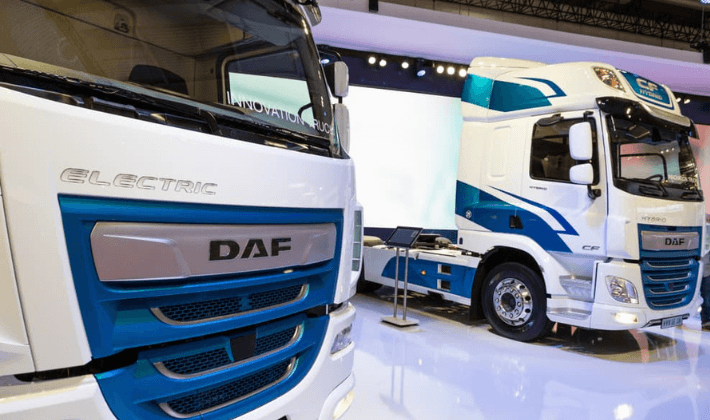
The trucking industry is ripe for disruption. It’s no secret that electric vehicles are the next big innovation, but when will we see them? More importantly, what forces are driving them to market? What types of changes will they herald when they get here?
There’s a lot riding on electric trucks, which is why we might see them sooner than many truckers think.
Impact of Electric Vehicles on the Logistics Industry: Costs Drive the Demand
Fuel costs have always been the magic variable for freight providers. Unfortunately, crude oil is its own economy, and it operates on a global scale. More often than not, freight companies are at the mercy of fuel costs as they rise or become volatile due to larger economic factors.
Instead of pacing the trends of crude oil, electric vehicles will bring a modicum of cost control back in-house for freight providers.
Not having to battle oil prices puts truckers and other freight providers on track to better operations. Being able to accurately anticipate electric vehicle costs will trickle down into everything from haulage rates to margins. Profitability will improve thanks to the return of competitive cost structures, made possible by independence from traditional fuel.
Autonomous Vehicles are Coming
With a massive trucker shortage, demand for autonomous trucking is growing. But before we can put a driverless truck on the road with any sort of reliability, that vehicle needs a way to keep itself powered. Electricity is the answer.
Autonomous trucking is the bigger trend driving the smaller one (electric vehicles) to market faster. Billions of dollars have been poured into autonomous trucking initiatives, with major players such as Tesla, Daimler, and Waymo creating promising tech. These same companies are likely to solve the problem of electric vehicles as a stepping stone in bringing their autonomous solutions to market.
Emissions are More Important than Ever
Global warming may be the single greatest threat facing our world today. Emissions, in particular, are in the crosshairs of the EPA. Freight emissions account for roughly 25% of all vehicle emissions, representing a segment ripe for emission reduction.
Electric drivetrains have already become a focus for improvement. With them comes the opportunity to create electric trucks with practical range. Further improvements here and in battery technology will ultimately address emissions concerns specific to the trucking industry.
Benefits of Electric Vehicles in Logistics
Reduced cost of ownership: The total cost of ownership (TCO) of EVs is significantly declining as new technologies are adopted by the government. TCO takes into account the entire life span of the vehicle, which depicts the long-term savings for logistics companies.
Environment friendly: The main source of harmful gas pollution in the environment is Internal Combustion Engine (ICE) road transportation. In the logistics industry, electric mobility will be crucial to successfully addressing the environmental problems brought on by internal combustion engine (ICE) trucks. So introducing EVs not only has large term benefits but also is beneficial for the environment.
Higher Savings On Fuel Costs: EVs have the potential to save operating costs and greenhouse gas emissions. Since gas prices have been rising steadily, electric cars (EVs) have shown to be a great way to replace internal combustion engines (ICE) while saving money on energy.
Minimal Maintenance: EVs need less upkeep and assistance from service providers. The expenses associated with gasoline tanks, pumps, spark plugs, oil changes, and other maintenance items reduce the amount of maintenance needed. Electric vehicle adoption in the logistics industry is facilitated by the EVs’ simple integration of new technologies.
Reduced Last Mile Logistics Costs: EVs are seen by supply chain organizations as more cost-effective options for last-mile logistics. Modern fleet tracking and optimization technology may be easily integrated into electric vehicles (EVs) because of their straightforward vehicle structure. Last-minute logistics costs can be reduced through effective tracking and optimization.
Cost-Benefit Analysis (CBA) With ICE Vehicles: While the initial cost of electric cars, buses, and three-wheelers may be higher than that of their internal combustion engine (ICE) equivalents, these vehicles are steadily becoming more affordable as they approach economies of scale.
There are many more benefits that contribute to the addition of electric vehicles to the logistics industry.
Electric Trucks are Closer than We Realize
Take a look at the Tesla Semi, announced in 2017. Two years later, these vehicles still aren’t on the road. The same goes for trucks by Volvo, Daimler, and countless other automotive manufacturers. When will these trucks go from concept to deployment?
The industry consensus is that a general rollout will take place over the next decade. Some companies, such as Volvo, have electric trucks slated for regional commercial use as soon as 2020. Other companies, such as startup Thor Trucks, will begin testing hydrogen-electric models in late 2019 — the likes of which may not actually go into service until the mid-2020s. Companies aiming for mass rollout may not see it until the mid- to late-2020s, when battery technology supports several-hundred-mile excursions on a single charge.
On top of everything, regulations for electric vehicles are still little more than a general framework. They’ll need finessing before electric trucks roll out in any sort of volume.
The enthusiasm is there. The technology is almost there. The infrastructure, logistics, and regulatory environment need some work. All told, electric vehicles are coming sooner than many realize. It appears we’re in the homestretch.
